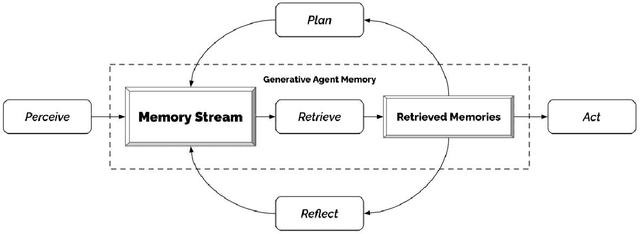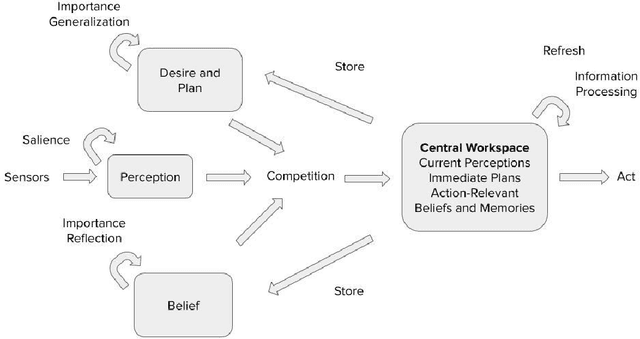A Case for AI Consciousness: Language Agents and Global Workspace Theory
Paper and Code
Oct 15, 2024

It is generally assumed that existing artificial systems are not phenomenally conscious, and that the construction of phenomenally conscious artificial systems would require significant technological progress if it is possible at all. We challenge this assumption by arguing that if Global Workspace Theory (GWT) - a leading scientific theory of phenomenal consciousness - is correct, then instances of one widely implemented AI architecture, the artificial language agent, might easily be made phenomenally conscious if they are not already. Along the way, we articulate an explicit methodology for thinking about how to apply scientific theories of consciousness to artificial systems and employ this methodology to arrive at a set of necessary and sufficient conditions for phenomenal consciousness according to GWT.
 Add to Chrome
Add to Chrome Add to Firefox
Add to Firefox Add to Edge
Add to Edge